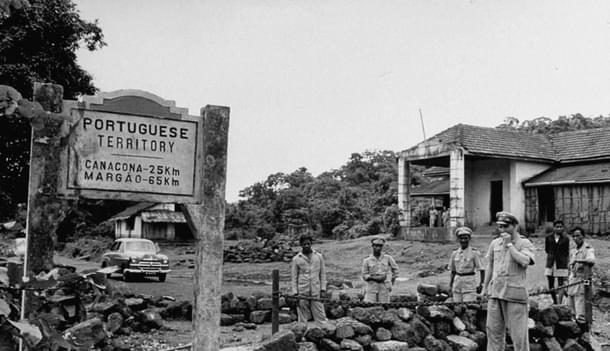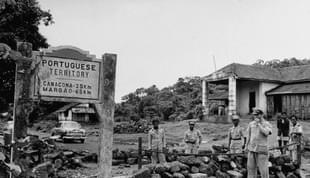Insta
55 Years Ago Today, Indian Army Brought 451 Years Of Portuguese Rule In Goa To An End
Swarajya Staff
Dec 19, 2016, 02:06 PM | Updated 02:06 PM IST
Save & read from anywhere!
Bookmark stories for easy access on any device or the Swarajya app.


After India gained independence in 1947, it requested Portugal to cede territories under its control to the Indian Union. Portugal, which controlled Goa, Daman and Diu and Dadra and Nagar Haveli, refused to negotiate on the sovereignty of the Indian territories that it occupied.
After the failure of diplomacy, the Indian government, on 11 June 1953, withdrew its diplomatic mission from Lisbon. Nehru tried to mobilise the international community against the atrocious Portuguese rule in Goa. Failing to gain success, he ordered the Indian Armed Forces to take Goa by force. In a military operation conducted on 18 and 19 December 1961, Indian troops captured Goa with little resistance.
Operation Vijay started on the morning of 18 December when the 50th Para Brigade of the Indian Army moved into Goa in three columns. Despite covert support from Pakistan, Portuguese forces surrendered on 19 December. The governor-general of Portuguese India signed an instrument of surrender.
Back then, India received a mixed response from the international community. While countries in the Middle-East, Eastern Europe and Africa supported India’s move against the Portuguese rule in Goa, western powers including the United Kingdom and the United States opposed the move. Almost all Asian countries, excluding Pakistan, stood firmly behind India. The USSR vetoed a UN security council resolution condemning the Indian “invasion” of Goa.





